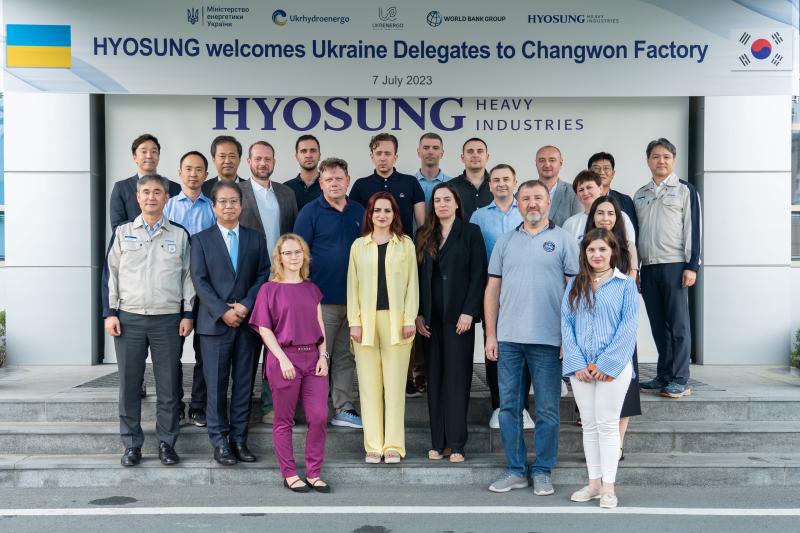
By: Kitty Halpern with Koji Nishida
KGGTF Grant: Ukraine energy storage and ancillary services market development support
Amidst the chaos of Russia's invasion of Ukraine, one sector that has suffered immeasurable damage is the electricity industry. In October 2022, targeted and intense military attacks on power facilities left more than half of the country's energy infrastructure in ruins. The result? Widespread and prolonged power outages, plunging communities into darkness and uncertainty.
According to the recent World Bank report, the destruction wrought by the invasion amounted to a staggering US$ 10.6 billion in damages, with the electricity sector bearing the brunt at US$ 6.3 billion. Urgent assistance is now paramount to restore the critical energy supply and repair the damaged transmission networks. The estimated cost for rebuilding the energy sector and adopting a "building back better" approach, aligned with European energy strategies and decarbonization goals, is an eye-watering US$ 45.3 billion over the next decade. An ambitious undertaking, but necessary for a brighter and more sustainable future.
Amidst the darkness, a glimmer of hope emerges. The World Bank, with funding from the Korean Green Growth Trust Fund (KGGTF), steps in to lend a helping hand. Their mission: to support the Ukrainian government and Ukrenergo and Ukrhydroenergo, the national energy companies, in restoring the energy infrastructure and strengthening the power system.
One key initiative in this endeavor is a study trip to South Korea that just occurred in July 2023. Representatives from the Ministry of Energy, Ukrenergo and Ukrhydroenergo traveled to South Korea, where they immersed themselves in the wealth of knowledge and experience offered by South Korea's battle-tested digitalization and decarbonization strategies. Embracing best practices in energy storage and digital power grid, this exchange of knowledge is set to be transformative to Ukraine’s energy sector.
The study trip was a chance to witness firsthand how South Korea has harnessed cutting-edge technologies and incorporated disaster-proof designs in its power infrastructure. Through technical analysis of battery storage use cases for greater grid stability.
The delegation was able to witness how South Korea’s energy model aligns with European strategies, promoting a reduction in fossil fuel reliance and embracing cleaner and greener alternatives. From solar farms to wind turbines, from hydroelectric dams to innovative smart grids, the possibilities are endless.
The exchange was more than just a learning opportunity; it was symbol of solidarity and South Korea’s strong support to Ukraine in the face of adversity. Nations, once worlds apart, now brought together by a shared vision of resilience and sustainability for Ukraine’s reconstruction. The delegation had a chance to visit the transformer factory of the manufacturer which delivers the first auto-transformers among other suppliers to restore the energy facility from the devastating damages occurred during the 2022-2023 winter.
As the study trip concluded, the delegates returned to Ukraine armed with newfound knowledge and a renewed sense of purpose. They know the road to recovery will be long and challenging, but they are now equipped with the tools to rebuild stronger, smarter, and greener.
The future remains uncertain, but one thing is clear: the electricity sector in Ukraine will rise from the ashes. The scars of war will heal, and a new era of resilience and sustainable energy will emerge. Thanks to the support of international partners and the spirit of cooperation, a brighter, electrified future awaits Ukraine.
